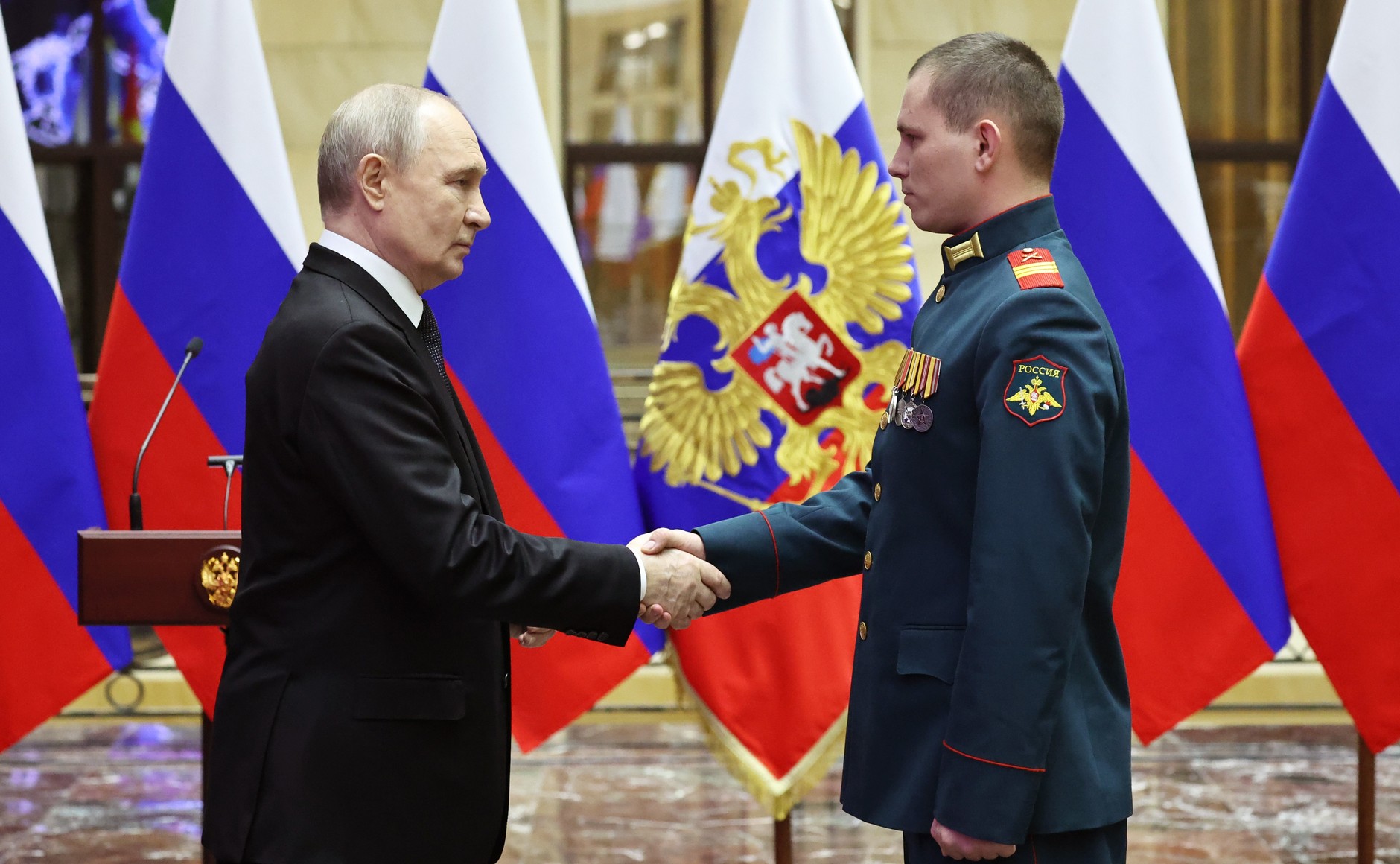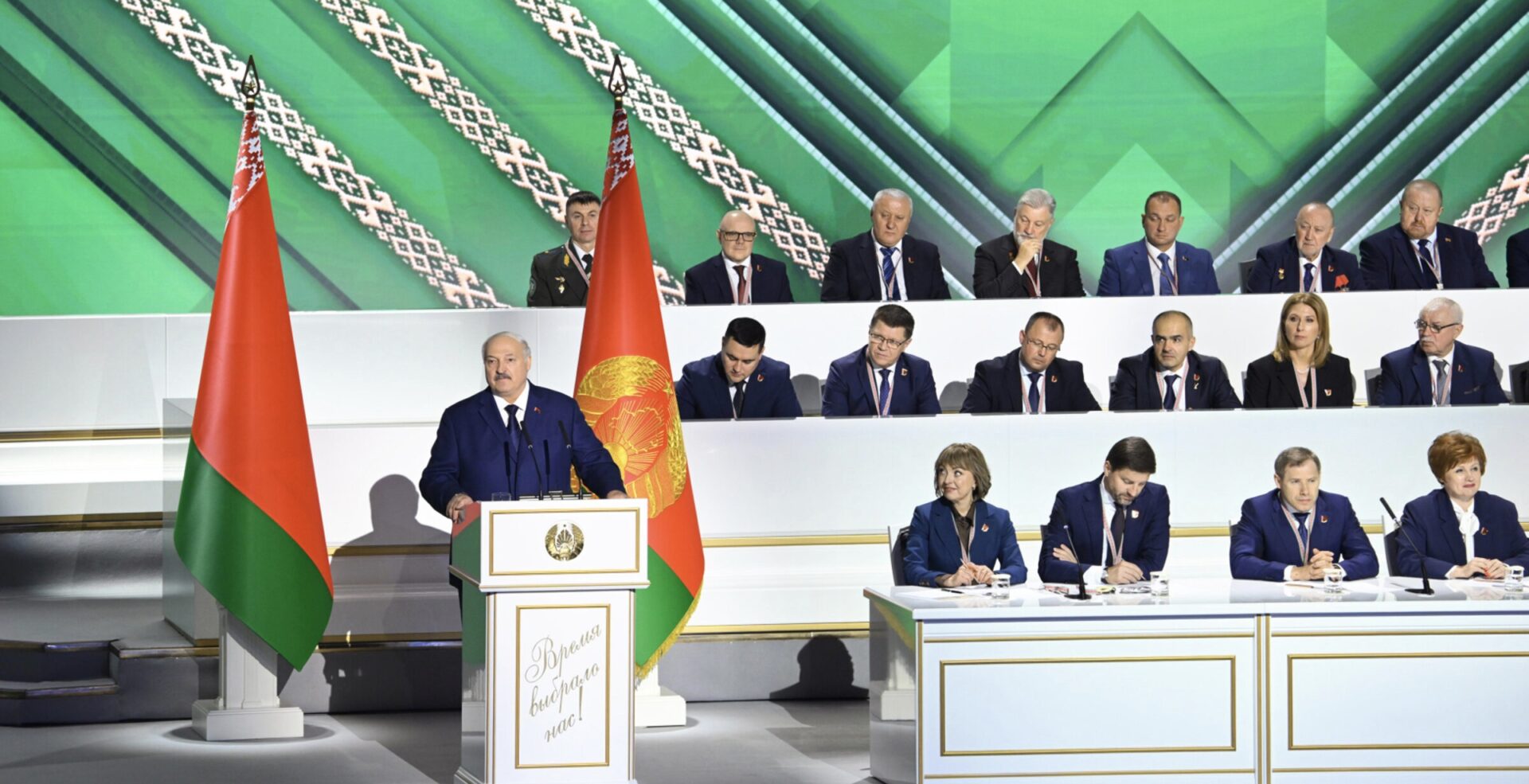
Psychology in Modern Russian Warfare
Psychology in Modern Russian Warfare
On March 22, 2021, in Nizhny Novgorod Oblast about 350 kilometers east of Moscow, the Russian 96th Reconnaissance Brigade of the Western Military District exercised a scenario in which its forces, without firing a single shot, compelled a group of “terrorists” to surrender a simulated town. They accomplished this with a combination of dropped leaflets and cellphone SMS messages (directed by unmanned aerial vehicles, or UAVs) that carried demoralizing communications to undermine the terrorists’ psychological state (Mil.ru, March 22). This may have been the first public instance of the Russian Armed Forces using text messages to force an enemy’s capitulation (even if just in an exercise), but it is only the most recent development in a resurgent trend of Russian military science.
In Moscow’s view, psychology, not battles, drove the great defeats of recent Russian history. Widespread despair that the tsarist government had no plausible plan for feeding city dwellers and soldiers (let alone achieving victory) caused Russia’s defeat in World War I; perceived futility of the campaign in Afghanistan led to the humiliating Soviet pullout in 1988–1989; and loss of belief that the Union of Soviet Socialist Republics (USSR) represented anyone’s interest precipitated the great historical strategic disintegration of the Soviet empire. Not a failure on the battlefield but the failure to motivate people to serve the state disabled the Russian government.
Orthodox Socialist thought in the Soviet Union purported to understand this trend, repeatedly castigating bourgeois and fascist motivations driving enemy soldiers as inferior (Voennaya Mysl [1] [2], February 1985). However, Soviet writers avoided considering the motivation of the Socialist people of the USSR to serve the state, officially anticipating that Marxism-Leninism had solved this problem (Voennaya Mysl, April 1988). This optimism failed to prevent the abrupt disintegration of the Soviet Union.
Since then, Russian strategic thinkers have pondered how the USSR ceased to be, seeking lessons to avoid repeating such state collapse. The lesson Russian military leaders seem to have drawn is one of maintaining the psychological wellbeing of their forces to retain morale (VPK, November 7, 2019) and, as a corollary, seeking ways to undermine the psychology of the enemy (Krasnaya Zvezda, November 18, 2019).
Raising the psychological quality of Russian service members has become a mantra of the military-political leadership (Scrf.gov.ru, December 2, 2019; Mil.ru, January 10, 2016 and August 28, 2019; Krasnaya Zvezda, February 10, 2021). Perhaps most notably, this appears to be the central mission of the reformed Military-Political Directorate (Krasnaya Zvezda, October 21, 2020 and January 15, 2021). Indeed, the directorate’s commander, Colonel General Andrei Kartapolov, frequently cites Russian culture, spirituality and patriotism as building blocks of this psychological strength (Krasnaya Zvezda, December 19, 2018). Accordingly, an avalanche of propaganda coverage of service members’ access to Christian Orthodox (Mil.ru, March 15, 22, 29, 2021) and other traditional Russian faith services (Mil.ru, January 4, March 28), patriotic rallies (Mil.ru, January 25; Rosguard.gov.ru, January 5), as well as other cultural outlets (Rosgvardiya, March 18; Mil.ru, February 24) highlights the field work to “safeguard” the psychology of Russian soldiers. These efforts also extend to Russian children, both in the Yunarmiya youth program (Mil.ru, April 1; Rosgvardiya, February 26) and in an endless litany of “lessons of courage” with various veterans talking about their favorite moments in Russian history (Mil.ru, February 4, 2019, March 17, 2019, February 22, 2021, March 1, 2021, March 5, 2021, March 26, 2021, April 7, 2021).
Kartapolov identifies so-called color revolutions as instances of exploiting local psychological weaknesses to effect geopolitical change in a manner states previously could only accomplish with force (VPK, September 11, 2018). Guided by this vision, the Russian military appears to approach psychology as yet another category of war requiring readiness and—as demonstrated by the above-described March 22 exercise—capabilities (VPK, September 11, 2018; TASS, May 28, 2019). Russian military leaders imagine the Western way of war involves deliberately attacking Russia with psychological elements (RIA Novosti, October 25, 2018; Krasnaya Zvezda, March 6, 2020).
The March 22 Nizhny Novgorod exercise imagined an adversary carrying cell phones to battle who, crucially, was susceptible to battlefield psychological degradation. This characterization suggests not a conventional state opponent but rather some non-state actor first provoked into taking up arms and subsequently provoked into laying them down again without a fight. At the same time, it reflects another of Kartapolov’s predictions: that future warfare will be decided increasingly by non-military means (Voenniy Vestnik, 2015).
All this suggests that the Russian Federation will increasingly resume Soviet-style ideological indoctrination—no longer Marxist but unfailingly patriotic (Mil.ru, January 6, 2021). On the other hand, this emphasis will also contribute to a continuing drive to improve the living standards for Russian service members—contractors and conscripts alike (Mil.ru, September 1, 2017).
Alongside cultural alienation, Russian thinkers see information insecurity as the other major source of danger to military psychology (Krasnaya Zvezda, March 6, 2020 and September 2, 2020). For some years now, the Russian government has officially pursued “international information security” as a de facto new form of arms control with the West without success (Scrf.gov.ru, February 26, 2019; Kremlin.ru, March 26). Their proposal appears to be for a mutual refusal to post potentially demoralizing content on the internet or other media communicable across borders (Scrf.gov.ru, February 15, 2017 and May 22, 2017). Disregarding the unrealistic measures necessary to enforce such a ban and the fact that this proposal amounts to legal censorship, it does suggest that Russian disinformation campaigns of recent years may be (at least in part) intended as a tradeable asset in exchange for the West foregoing criticism of the Russian state.
Given that Western governments are highly unlikely to accept this proposal—let alone be able to enforce it—one can anticipate more Russian psychology-centric military exercises in the future. Perhaps more concerning than the idea of UAV-generated spam SMS is the broader implication that Russia perceives this as a new domain of warfare (Scrf.gov.ru, September 28, 2018) and appears to be actively developing a means of synthesizing its own color revolutions to address it. The Russian government repeatedly accuses Western governments of purportedly adopting false intentions to create color revolutions (Kremlin.ru, November 20, 2014 and January 12, 2017; Scrf.gov.ru, May 20, 2015; Mid.ru, October 10, 2014, January 28, 2021, February 4, 2021, March 12, 2021, April 1, 2021). As such, equal if not greater detachment from reality in Russian messaging and signaling should be expected in future events. This portends less violence against physical bodies but substantially more against minds and the truth in the wars and conflicts of tomorrow.


